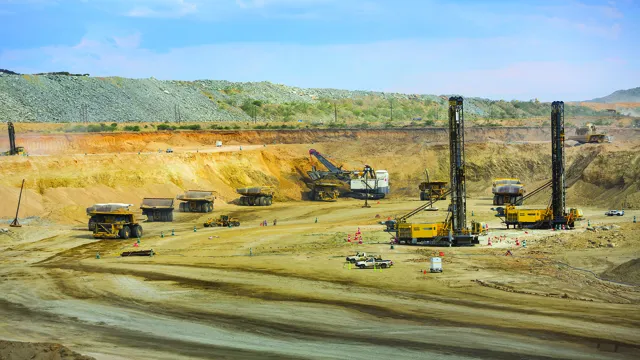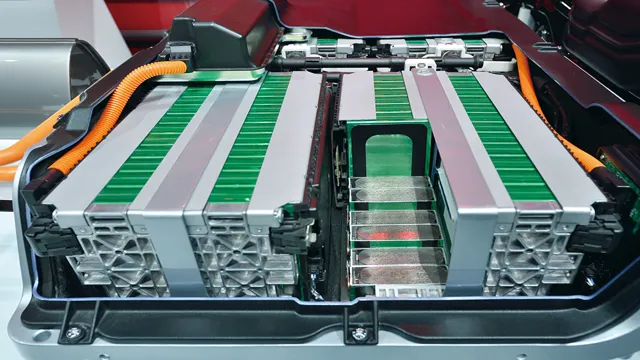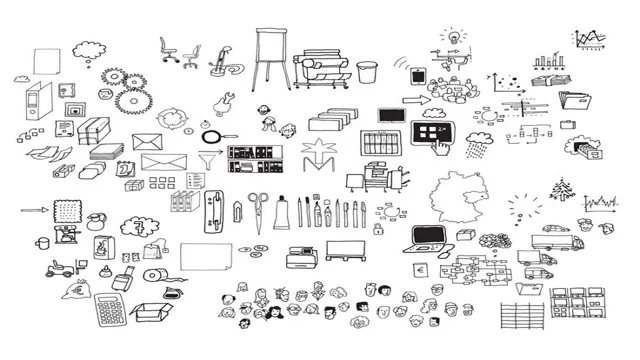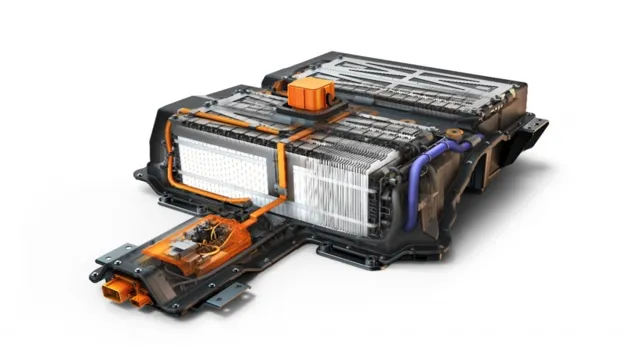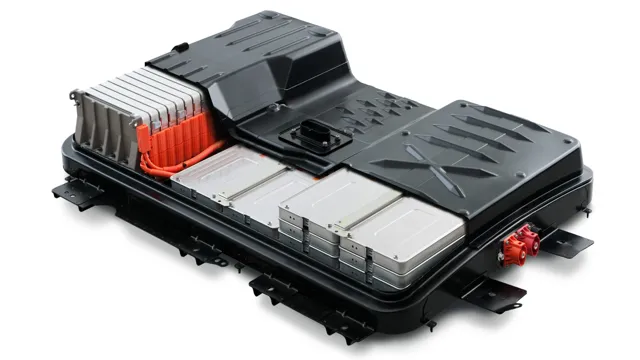Powering the Future: Uncovering the Impact of Electric Car Battery Mining
Electric cars have been touted as the solution to the world’s carbon emissions problem. As such, more people are now considering electric cars as a viable mode of transportation than ever before. While it’s true that electric cars are cleaner than gasoline-powered vehicles, it’s essential to look deeper into their impact on the environment.
One of the critical factors to consider when discussing the environmental impact of electric cars is the battery mining process. Many people wonder about the truth behind electric car battery mining, and this blog post aims to shed light on the reality of the situation. The mining process, whether for oil or minerals, has a significant environmental impact.
The same holds for electric car battery mining. Electric car batteries are made of various raw materials such as lithium, cobalt, and nickel, which are mined from the earth. The mining process often leads to water and air pollution, deforestation, and land degradation.
Additionally, mining can also have adverse impacts on animal habitats, leading to the extinction of certain species. The mining process is only the beginning of the environmental impact of electric car batteries. The production of the batteries, transportation of the raw materials and the finished batteries, and disposal of used batteries also have adverse environmental effects.
However, it’s important to note that the environmental impact of electric car batteries is still less compared to the pollution created by gasoline and diesel-powered vehicles. In conclusion, electric cars are undoubtedly a step in the right direction towards reducing carbon emissions and saving the earth. However, it’s crucial to keep in mind the environmental impact that their batteries have and find ways to minimize it.
As consumers, we can make a difference by supporting environmentally-conscious manufacturers and proper disposal of used batteries. Understanding the truth behind electric car battery mining is the first step towards making sustainable choices.
Environmental Impact
One of the biggest concerns surrounding electric cars is the mining of the batteries. Mining for lithium, cobalt, and other materials needed for electric car batteries can cause significant environmental damage. In addition, the process of mining and refining these materials is extremely energy-intensive, producing large amounts of greenhouse gases.
However, efforts are being made to mitigate these issues. For example, some companies are exploring alternative sources of these metals, such as recycling used batteries. Others are investing in renewable energy sources to power the mining and refining process.
While there is still much work to be done, the electric car industry is making progress towards reducing its environmental impact with regards to battery production.
Carbon Emissions during Production
Carbon emissions during production have a significant impact on the environment. When creating products, factories and manufacturers emit large amounts of carbon dioxide, methane, and other greenhouse gases into the atmosphere. These emissions contribute to global warming and are a major factor in climate change.
In order to reduce this impact, companies are implementing more sustainable practices and using renewable energy sources. By using cleaner fuels and reducing waste, manufacturers can lower their carbon footprint and help to mitigate the effects of climate change. Ultimately, it is up to all of us to be aware of our impact on the environment and take steps to reduce our carbon emissions.
By making small changes in our daily lives, we can all make a big difference in the fight against climate change.
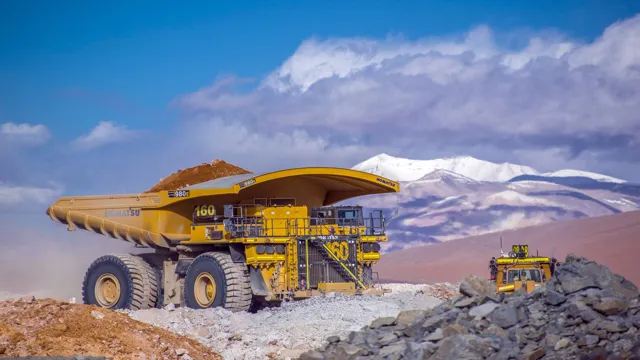
Water Consumption and Pollution
Water consumption and pollution are two significant environmental issues that affect our planet. The excessive use of water has led to water scarcity, and the pollution of water bodies has resulted in the loss of aquatic life. The production processes of industries use a considerable amount of water, leading to increased water consumption.
The chemicals and waste produced by factories, households, and agriculture continue to pollute waterways, affecting not only the aquatic species but also humans who depend on them. Several water treatment plants provide potable water, but the cost of increasing purification processes is high, and not all areas have access to clean and safe drinking water. While some people have access to bottled water, this comes with the detrimental impact of plastic pollution on our environment.
We must reduce our water consumption by adopting sustainable habits such as taking shorter showers, fixing leaks and conserving water. Additionally, we must reduce pollution by adopting eco-friendly practices, properly disposing of waste, and using less hazardous chemicals. It is crucial for us to take individual responsibility and make changes in our daily routine to mitigate the effects of water consumption and pollution on the environment.
Human Rights Concerns
One of the concerns surrounding electric car batteries is the mining of the materials needed to produce them. Many of the materials used, such as cobalt, lithium, and nickel, are often mined in countries with poor human rights records. These mines have been known to exploit child labor, put workers in dangerous conditions, and destroy natural habitats.
As consumers, it’s important to be informed about the ethical implications of our purchases. While some automakers have committed to using responsibly sourced materials, the issue remains a challenge in the industry. It’s important to continue to push for transparency and fair labor practices in the mining and production of electric car batteries.
By doing so, we can ensure that not only are we taking steps to reduce carbon emissions, but also protecting the rights and safety of those involved in the production process.
Child Labor in the Supply Chain
Child labor in the supply chain is a serious human rights concern that requires urgent attention. In many countries, children are forced to work long hours in hazardous conditions, often for little pay, to produce goods that are sold in the global market. This practice is prevalent in industries such as agriculture, textiles, and mining, where child laborers are exploited for their cheap labor.
It’s heartbreaking to know that millions of children worldwide are exposed to physical, emotional, and psychological harm while working in the supply chain. Despite efforts to combat child labor, progress has been slow and more needs to be done to eliminate this unethical practice. As consumers, we have a responsibility to be aware of such issues and to demand that the products we buy are free from child labor.
By taking action, we can make a difference and ensure that the rights of children are protected.
Working Conditions in Mines
When we talk about the working conditions in mines, one of the primary concerns that immediately come to mind is the violation of basic human rights. The people working in mines are often subjected to harsh working conditions that are far from what we would consider safe or humane. This is especially true for miners in developing countries where labor laws are laxly enforced.
It is not uncommon for miners to face long hours of work without rest and to be exposed to hazardous substances that can cause lifelong health problems. Additionally, mines are notorious for not providing adequate safety equipment and training for their workers. This puts miners at risk of accidents and can even result in fatalities.
In a world where basic human rights are upheld, these working conditions are unacceptable. It is not just the responsibility of mine owners to ensure safe working conditions for their employees, but also the responsibility of governments and regulatory bodies to enforce laws and create standards that prioritize the welfare of mine workers.
Illegal Mining Activities
Illegal mining activities are an ongoing problem that has far-reaching ramifications for human rights concerns. It not only leads to environmental degradation but also poses a significant threat to human life. Workers, including children, are often subjected to hazardous working conditions and operate without proper protective gear or safety regulations.
Additionally, illegal mining exacerbates social conflict and fuels corruption, leading to human rights violations by armed groups. These groups often resort to violence and intimidation to maintain control over the mines, leading to the displacement of indigenous communities and the destruction of their culture and way of life. It’s essential for governments and responsible mining companies to address illegal mining activities, end human rights violations, and establish a sustainable mining practice.
By doing so, they can ensure the protection of human life, the environment, and the safety of mining workers while securing the economic development of mining communities.
Alternatives to Traditional Battery Mining
The traditional method of mining materials for electric car batteries is resource-intensive and environmentally harmful. Fortunately, there are alternative methods that are gaining traction. One such method is urban mining, which involves recycling electronic waste to extract valuable metals.
Additionally, research is being done on using seawater to extract metals like lithium, which could potentially provide an abundant and sustainable source of raw materials. Another promising alternative is the use of solid-state batteries that do not require certain hard-to-find materials like cobalt. As the demand for electric vehicles continues to rise, it is imperative that we explore and invest in these alternative methods to ensure a sustainable and ethical supply chain for electric car batteries.
Recycling Lithium-Ion Batteries
As the demand for electric vehicles continues to rise, so does the need for lithium-ion batteries. However, traditional battery mining has harmful environmental consequences, such as deforestation and disturbance of ecosystems. Recycling is, therefore, a more sustainable solution to reduce the need for new batteries.
Lithium-ion batteries contain valuable materials like nickel, cobalt, and lithium which can be extracted and used again instead of being thrown away. By implementing recycling programs, we can minimize the negative impacts of traditional battery mining and conserve non-renewable resources. We can also reduce the amount of toxic waste produced by discarded batteries, ultimately benefiting the environment.
Overall, recycling lithium-ion batteries is a crucial step towards a more sustainable future, and it’s something we can all contribute to by properly disposing of our old batteries.
Developing New Battery Technologies
As the demand for battery power rises, there is a growing need for alternative methods of battery mining to reduce environmental impact. One solution is the development of new battery technologies that utilize sustainable materials such as seawater and seaweed. Seawater batteries, for example, use a unique sodium-ion chemistry that can be found in the ocean, making it a renewable and eco-friendly source of power.
Seaweed can also be used to develop batteries through the use of cellulose. This alternative method of battery mining provides not only an environmentally friendly solution, but also a cost-effective one. In addition, it reduces the dependence on traditional mining methods for materials such as lithium and cobalt.
The shift towards sustainable battery technologies is necessary for the future of renewable energy, and these new methods have the potential to revolutionize the industry.
Conclusion: The Future of Battery Mining
In conclusion, mining for electric car batteries may seem like a dark and ominous industry, but in reality, it is a shining beacon of hope for our planet’s future. By sourcing the necessary materials for these batteries, we are paving the way towards a more sustainable future in terms of transportation. So while we may be digging deep into the earth for these minerals, we are also digging deep into a brighter and cleaner future for generations to come.
Let’s charge up and drive forward towards a better tomorrow.”
FAQs
What materials are used in electric car batteries?
Electric car batteries typically contain metals such as lithium, cobalt, nickel, and manganese.
What is the impact of mining these materials for electric car batteries?
The mining of materials like lithium and cobalt can have negative impacts on the environment and local communities, including deforestation, water pollution, and displacement of indigenous communities.
Are there alternatives to mining these materials for electric car batteries?
Some researchers are exploring alternatives to the traditional materials used in electric car batteries, such as sodium-ion or solid-state batteries.
How can we ensure ethical and sustainable sourcing of materials for electric car batteries?
Consumers can support companies that prioritize sustainable and ethical sourcing practices, and governments can implement regulations to ensure responsible mining practices. Additionally, recycling and reusing batteries can reduce the demand for new materials.
